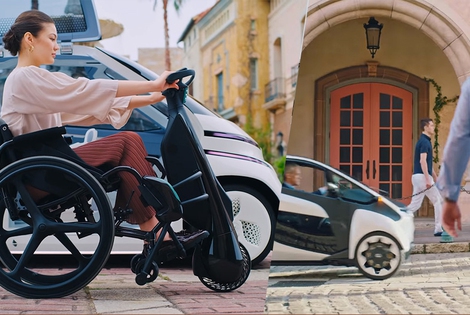
Milan has announced one of Europe’s most ambitious mobility schemes, known as Strade Aperte (open roads). Its goal is to reduce cars in phase 2 of the lockdown by increasing bike lanes and pedestrian areas.
A young start-up company based in Turin created a GPS antitheft device for bicycles that can be monitored via smartphone. Sherlock is the only Italian project presented at the British Parliament.
Sherlock is one of the smallest GPS antitheft devices ever realised and it is such an interesting invention that the young start-up that produced it gained international attention. It is called after the famous British detective created by author Arthur Conan Doyle. The project is the result of the company’s cooperation with the Politecnico di Torino (University of Turin) that we also mentioned when talking about PulsaR.
The product gained international recognition: European funds and a tour of events and conferences to make the product known in Hamburg, Barcelona, Copenhagen, London. Moreover, the start-up that created it was the only Italian company to be chosen by SETsquared, a focus for enterprise activity and new business creation for universities. Finally, it will be presented together with other projects at London’s House of Commons and its demo at the London Bike Show that will be held from 10 to 14 February.
The GPS alarm tracks the user’s bicycle in real time, with a margin of error of five metres, allows the user to find it again in case of theft and to control their bike with a smartphone app. You just need to subscribe your bike, create a profile with a photo and write the model.
It functions as some models of smartphone that can be tracked using a GPS whilst they are on. So Sherlock is also useful to find the exact place where you’ve parked your bicycle – it’s excellent for absent-minded people. In case of theft you get a push notification and the app can forward the warning to your local police.
The device can be installed on the handlebar, under the seat or on the electronic gear-shifting system and it’s not visible. The battery only functions when the bike is moving. If you use it with Strava you can keep track of time and distances and ask for tips and information in the community of users.
The start-up based in Turin needs beta testers because it aims to put the product on the market in 2016 after testing it with the help of a crowdfunding campaign.
Sherlock offers job opportunities, indeed they offer a full-time telecommuting job to an experienced Android develope based at the Politecnico di Torino. Other good news: the team is made up of six people and respects gender equality.
Siamo anche su WhatsApp. Segui il canale ufficiale LifeGate per restare aggiornata, aggiornato sulle ultime notizie e sulle nostre attività.
![]()
Quest'opera è distribuita con Licenza Creative Commons Attribuzione - Non commerciale - Non opere derivate 4.0 Internazionale.
Milan has announced one of Europe’s most ambitious mobility schemes, known as Strade Aperte (open roads). Its goal is to reduce cars in phase 2 of the lockdown by increasing bike lanes and pedestrian areas.
Formula 1, the world’s most important auto racing championship, has decided to turn the page and aim for carbon neutrality with the support of its teams, drivers and the whole racing circus.
Toyota and LifeGate began telling the story of hybrid mobility back in 2006, now, on the road to the Tokyo 2020 Olympics, they’re still treading the path of sustainable mobility. Here are the main steps of the journey.
Germany’s first solar bicycle lane could be the prototype for the roads of the future. The photovoltaic tiles melt snow and ice, and are capable of absorbing noise.
The Vespa is back in an electric version. Production has just started and the first models can be reserved online starting from October.
The city of Utrecht, in the Netherlands, is home to a bridge for cycling and walking that stretches over roof garden of a Montessori school. This project enhances practicality and will allow families to bring children to school by bike, passing through green areas. Despite their functionality, bridges are often seen as an infrastructure that is
The Lego hair bike helmet is the latest Internet craze. For now it’s just a prototype but production on a large scale will probably start soon.
Just as fires often give way to new growth, after the Dieselgate scandal, which saw Volkswagen cheating on US emission rules, the German car manufacturer radically changed course, beginning to focus on sustainable mobility. The German car company aims to propose thirty zero-emission models and produce at least one million battery electric vehicles by 2025. An ambitious mission
Sustainable, two-wheel mobility is triumphing in Copenhagen. After years of investments, policies, and infrastructural changes, bikes now outnumber cars in the city centre. The website Copenhagenize has released data linked to the number of vehicles entering the city centre, which are monitored by the city’s administration on a daily basis. Last year, 265,700 bikes have entered








